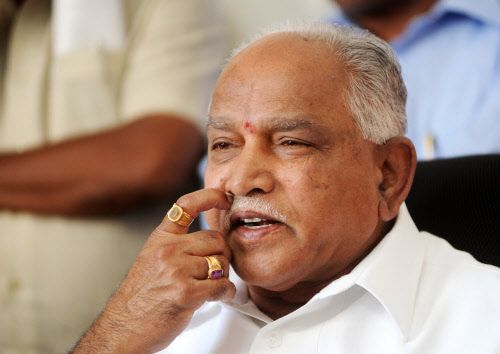Bangalore, Feb 17: A new private complaint has been filed in the Special Lokayukta Court alleging illegal denotification of land by former chief minister B?S?Yeddyurappa.
The complainant Hunsur K Chandrashekar, who is the Founder President of Praja Kranthi party, stated that Bangalore Development Authority (BDA) had obtained 6 acres and 18 guntas of land in Halagevaderahalli in Rajarajeshwarinagar belonging to Basappa in Survey No 251 for the development of Banashankari 5th stage Layout.
BDA issued the final notification and awarded compensation and the land was transferred to BDA in 2002. In 2008, BDA cleared the land of all encroachments and began the formation of a layout and about 66 houses were constructed.
In 2004, Ananda and Ratnamma approached the then chief minister S?M Krishna and stated that they owned 5 acres of land in Survey No 251 and they had originally acquired the land for the purpose of constructing a school which would impart free education.
They sought denotification of the land as they wanted to construct the school on the land. The S M Krishna government rejected the appeal. Futher, the same application was made in 2006 before the then-Chief Minister H?D Kumaraswamy which was also rejected.
Later, they approached the Yeddyurappa government and also sought endorsement for their application from Nippani MLA Kaka Saheb and Tumkur MP G S Basavaraju.
When Yeddyurappa sought the opinion on the matter, his officers raised objections on several grounds including the fact that there was a High Court order preventing the denotification and that the BDA had already started construction. Then Commissioner of BDA Siddaiah also opined that they needed the land for the formation of the Layout.
Despite all this, Yeddyurappa ordered denotification of the land on humanitarian grounds.
Chandrashekar alleged that once the land was denotified, Anand and Ratnamma sold it to builders and an apartment complex was constructed on the land. The matter has been adjourned to February 19.





Comments
Add new comment